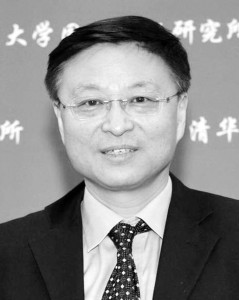
Six decades ago, the American diplomat George Kennan wrote an article, “The Sources of Soviet Conduct,” that galvanized American and world opinion, which soon hardened into the rigid postures of the Cold War. Today, given China’s decisive influence on the global economy, and its increasing ability to project military power, understanding the sources of Chinese conduct has become a central issue in international relations.
Since 2008, discussions among Chinese scholars and strategists on the nature of their country’s foreign policy have focused on two issues: its ideological foundations, and China’s international appeal and standing-its “soft power.”
Mainstream thinking, known as the Chinese School, insists, with the government, on “Marxism with Chinese characteristics” as the bedrock principle of China’s foreign policy. But a minority school argues that China should rely instead on the country’s traditional political thought, emphasizing the universal value of traditional Chinese philosophy. While People’s Daily, the Chinese Communist Party’s official newspaper, consistently attacks that position, the party itself has been rehabilitating Confucius, the central figure in Chinese traditional thought, going so far as to erect a statue of him in Tiananmen Square.
The Chinese School insists on adhering to Deng Xiaoping’s doctrine of maintaining a low profile in international diplomacy, while the traditionalist group advocates taking on greater international responsibility. The mainstream school defines China as a developing country, pointing to China’s per capita GDP, which ranks only 104th in the world. The traditionalists argue that China should assume responsibility for world affairs consistent with its status as the world’s second-largest economy.
Today, the impact of the Chinese School seems to be limited mostly to official statements, while the traditionalists are gradually gaining policy influence. For example, the Chinese government reiterated its core diplomatic principle of non-intervention in other countries’ affairs during the Libya crisis, yet China accepted the imposition of United Nations’ sanctions on Moammar Gadhafi’s government.
Moreover, China dispatched a warship and four military aircraft to the Mediterranean to help evacuate 35,860 Chinese nationals and 2,100 others from Libya. That measure, the first projection of Chinese naval power so far from home, is consistent with Confucianism, which regards morality as the top priority of policymaking, rather than Marxism, according to which economic interests alone drive foreign policy.
Early Confucian thinkers were writing in a world of small countries competing ruthlessly for territorial advantage. For them, the key to international power was political power, and the central attribute of political power was a morally informed leadership. Rulers, they believed, should act in accord with moral norms whenever possible. And the sphere of concern for any humane ruler should be the whole world, not just the people of one state.
Thus, thinkers such as Mencius argued that humane authorities should punish immoral rulers in other states who tyrannize their people. Rulers who rely mostly on military or economic might divorced from morality, he argued, cannot achieve long-term success on the international stage.
Although China is building Confucius Institutes across the globe, China’s traditional political philosophy does not often play a decisive role in policymaking. Nevertheless, we cannot rule out the possibility of it becoming the mainstream of thinking in Chinese foreign-policy circles in the near future.
Domestic politics is always an important factor influencing a country’s foreign policy. At the recently concluded 11th People’s National Congress, the word heard most often in policy discussions was “happiness,” which had suddenly replaced “economic growth” as the official mantra. This change may augur future adjustments in China’s foreign policy as well, for “happiness” is a word used more frequently in Chinese traditional political thought than in Marxist political philosophy.
According to early Confucian thinkers, a key task for rulers is to strive to improve a people’s happiness, which is itself grounded in a moral way of life. Because poverty was an obstacle to moral behavior, they believed that the state should be vitally concerned with eliminating it. The idea that the state should pursue economic growth without consideration for moral concerns was anathema to Confucius and his followers.
In February 2010, at the Spring Festival, one of China’s biggest holidays, marked by family reunions, Premier Wen Jiabao said that the government should help people live with dignity and happiness. At a press conference this month, he said that economic reform cannot succeed without political reform, and that corruption currently poses the gravest danger to China.
Such statements sounded new to Chinese ears, because they accentuated politics rather than trumpeting the party’s usual emphasis on economic determinism.
Today, it is impossible to tell what impact and how much influence Chinese traditional political thought-the traditional concern with moral duty, happiness and honor-will have on China’s foreign policy. But it is certain that the influence of traditional ideas in Chinese public life is growing. Indeed, no force seems able to reverse this trend in the coming years.
Yan Xuetong is dean of the Institute of Modern International Relations at Tsinghua University and the author of “Ancient Chinese Thought, Modern Chinese Power,” recently published by Princeton University Press.

Yeah Fool us.
Sweat shops???
Freedom of speech, religion, human rights, freedom to vote, freedom to have opposition political parties…
Your comment forced me to read the piece again, now I wonder whether you read it before you comment. Duh moment?